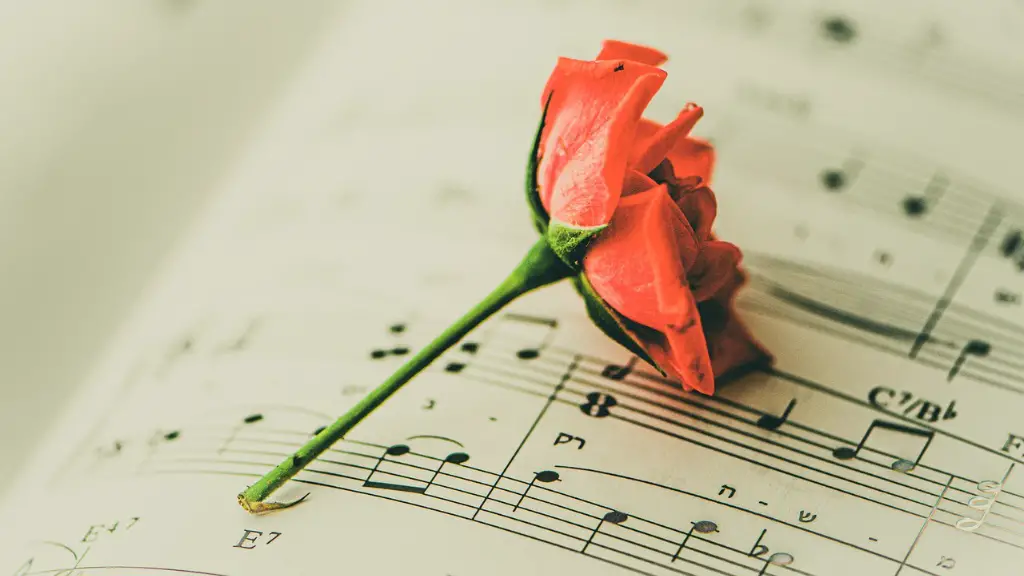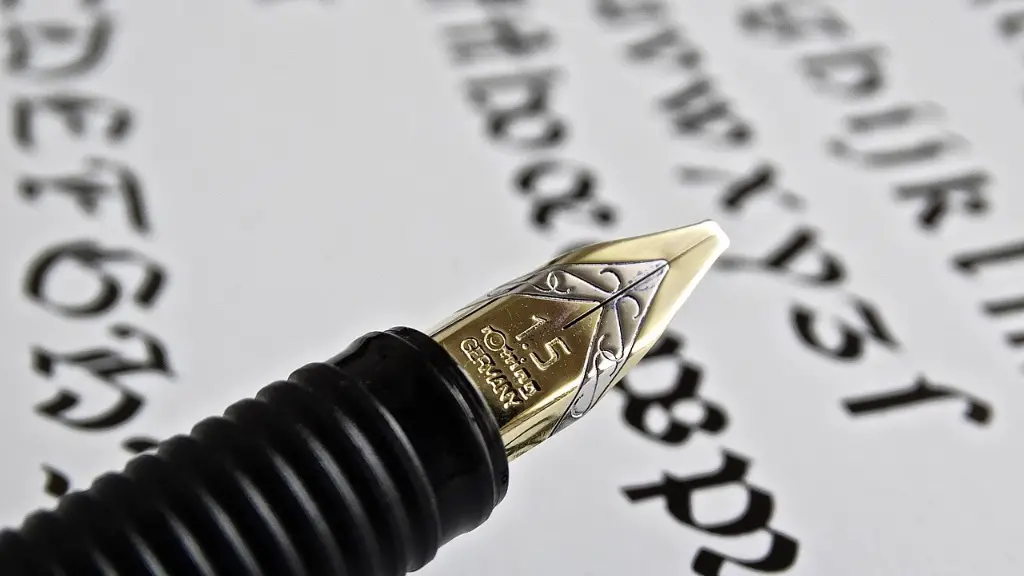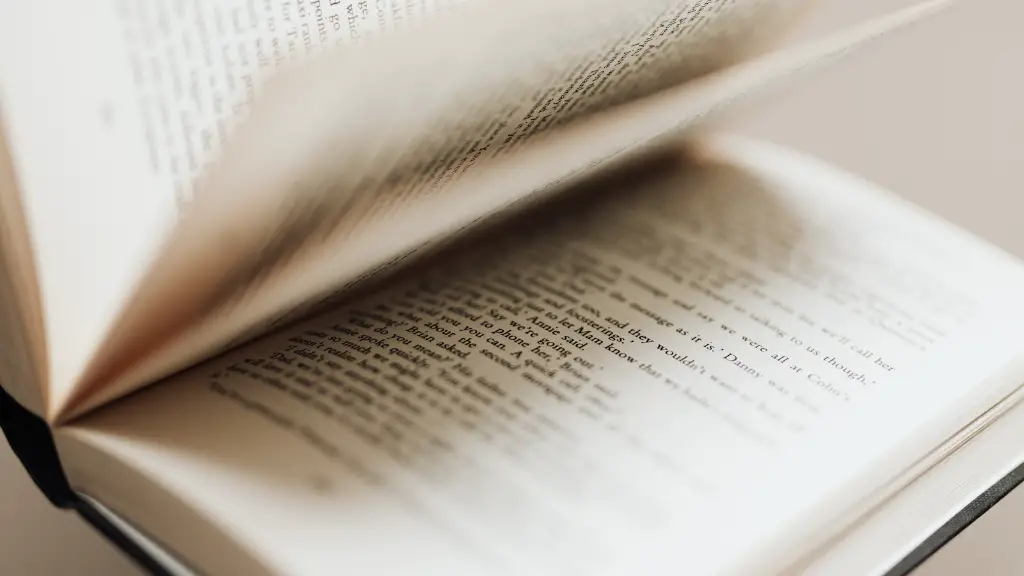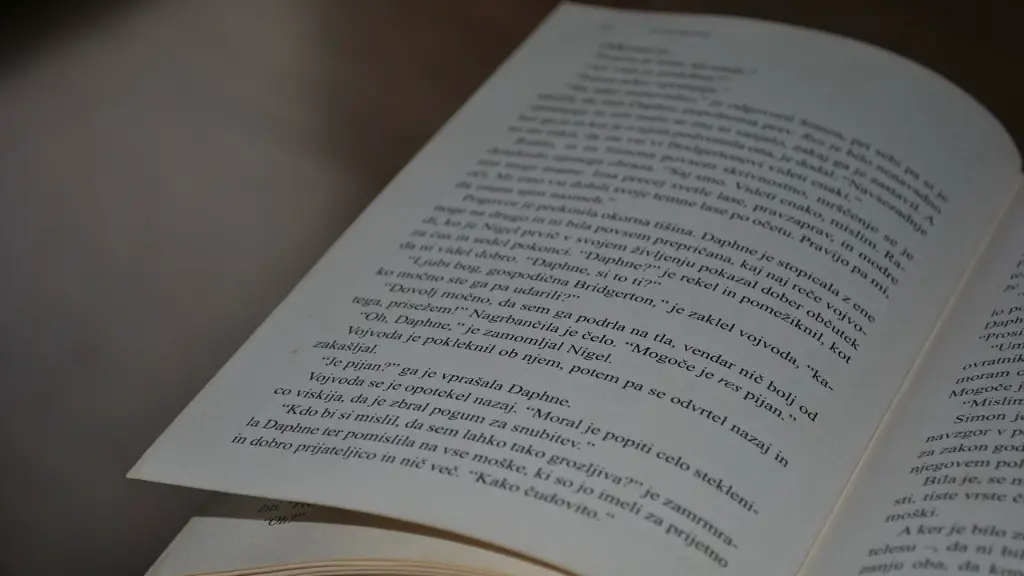Mock heroic poems are a type of poetry that criticize current cultural practices and attitudes by playing with heroic conventions from classical literature. The term “mock heroic” was originally used to describe poems that jestingly mimic the style and tone of a classical heroic poem. It has since been used to describe parodies, satires, and other forms of mocking poetry.
In classical heroic poetry, the hero often undergoes a journey or quest in order to obtain some goal or obtain recognition from their peers. Mock heroic poems take this type of structure and replace the heroic characters with characters such as peasants, housewives, and even animals in order to comically contrast the noble and heroic figures with the everyday. This type of poetry often has a humorous effect, as the characters are seen to be bumbling and comically inept in contrast to their heroic counterparts.
Mock heroic poetry can also be used to criticize certain aspects of society. By parodying the heroic conventions of earlier literature, poets can draw attention to hypocrisy and contradictions in current cultural practices. By exaggerating certain aspects of a situation, caricatures can reveal underlying flaws and problems that wouldn’t be visible otherwise. In this way, mock heroic poetry can be used to challenge the status quo and provoke readers into examining the society around them.
The history of mock heroic poetry is long and expansive, with poems in Ancient Greek and Latin, as well as works from the Renaissance and the Enlightenment. In fact, some of the most famous mock heroic poems are still widely read today. Alexander Pope’s “The Rape of the Lock” and Jonathan Swift’s “A Modest Proposal” are two examples of mock heroic poetry that are still discussed today. These poems have become iconic works of English literature and continue to be studied and analyzed by experts.
Mock heroic poetry can be found throughout literary history, often in the form of parodies and satires. It is a type of poetry that is often used to criticize modern society and evoke strong emotions in the readers. By mocking the conventions of classical heroic poetry, poets can draw attention to underlying flaws and hypocrisies in society, while still entertaining their audience.
Examples of Mock Heroic Poetry
Perhaps the most famous example of mock heroic poetry is Alexander Pope’s “The Rape of the Lock”. This poem parodies the structure and styling of an epic poem, but replaces the heroic characters with an upper-class housewife and her admirers. By comically portraying these figures as heroic characters, Pope highlights the absurdity of their situation, while also pointing out the frivolity of the upper class.
Another famous example of mock heroic poetry is Jonathan Swift’s “A Modest Proposal”. This work parodies the writing of scientific and political tracts, but substitutes the serious subject of economics with a deeply absurd suggestion. By comically suggesting that the poor should consume their own children as a means of solving the economic woes of their country, Swift reveals the true nature of England’s callousness towards its poorer citizens.
There are many other examples of mock heroic poetry, from Ancient Greek and Latin works, to the works of Renaissance and Enlightenment poets. These works have become iconic, and are regularly studied by experts and analysed by modern readers.
The Function of Mock Heroic Poetry
Mock heroic poetry is a type of poetry that often serves as a commentary or critique of society. By comically inverting the conventions of classical heroic poetry, poets can draw attention to underlying flaws and contradictions in modern culture. This type of poetry is often humorous, but can also provoke strong emotions in readers, as it often reveals some unpleasant truths about society.
Mock heroic poetry can also be used to challenge existing power structures, as they are often directed against the upper class and their privileges. By pointing out the flaws and hypocrisies of those in power, poets can encourage readers to challenge the status quo and pursue social change.
Finally, mock heroic poetry is also a great way to entertain readers. By comically inverting the heroic conventions of literature, poets can create humorous and absurd stories that can be enjoyed and appreciated by all.
Modern Examples of Mock Heroic Poetry
Mock heroic poems are still popular today, and there are many examples of contemporary works that utilize this style of writing. For example, John Donne’s poem “The Flea” is a mock heroic poem that satirizes the conventions of love poetry and draws attention to the foolishness of love. In this poem, Donne comically portrays the flea as a heroic figure, using it to poke fun at the conventions of love poetry.
Another modern example of mock heroic poetry is “The Reluctant Traveler” by American poet Donald Hall. This poem uses the conventions of classical heroic poetry to portray a journey of a reluctant traveler. In this poem, Hall comically uses the conventions of epic poetry to tell the story of a man who would rather stay home than go on an adventure.
In conclusion, mock heroic poetry is a type of poetry that is often used to critique and challenge modern society. By comically inverting the conventions of classical heroic poetry, poets can draw attention to underlying flaws and hypocrisies in society, while still entertaining their readers. While there are many historical examples of mock heroic poetry, this type of poetry is still popular today, with many modern poets utilizing this style of writing.
The Impact of Mock Heroic Poetry
Mock heroic poetry has had a profound impact on literature and culture. By parodying the conventions of epic poetry, poets can draw attention to underlying problems within society. This type of poetry often takes a political stance, and can be used to challenge prevailing power structures and provoke social change.
In addition, mock heroic poems often have a humorous effect on the reader. By using absurd caricatures and comically inverting heroic conventions, poets can entertain their readers while simultaneously providing a commentary on society. This combination of entertainment and critique often makes mock heroic poetry more memorable and appealing to readers.
Furthermore, mock heroic poetry often serves to reinforce traditional values and conventions. By engaging in parodies and exaggerations of heroic archetypes, poets can draw attention to the goodness and values of such archetypes, while also lampooning any instances of hypocrisy or contradictions within their society.
In conclusion, mock heroic poetry is an important and influential form of poetry. By comically inverting heroic archetypes, poets can both critique and entertain their readers, while also reinforcing traditional values and conventions.
The Language of Mock Heroic Poetry
One of the defining aspects of mock heroic poetry is its language. This type of poetry often makes use of heightened language and ornate poetic devices such as irony and hyperbole in order to make its point. By exaggerating certain aspects of a situation and comically inverting the conventions of classical heroic poetry, poets can create a striking effect that draws attention to underlying flaws and hypocrisies in society.
In addition, poets often make use of intense, emotive language in order to create an emotional response in their readers. By utilizing irony, sarcasm, and other ironic devices, poets can often evoke powerful feelings in their readers, as these devices are often used to either reinforce or challenge existing conventions and power structures.
Finally, mock heroic poetry often makes use of allusions to classical literature in order to mock existing conventions and draw attention to underlying hypocrisies in society. By providing caricatures and exaggerations of heroic archetypes, poets can effectively criticize the status quo while still entertaining their readers. This type of poetry combines the conventions of classical literature with the political and satirical critiques of modern society, making it both unique and memorable.
In conclusion, mock heroic poetry is a type of poetry that makes use of heightened language and powerful devices in order to mock current conventions and criticize modern society. By utilizing irony, sarcasm, and allusions to classical literature, poets can effectively critique and entertain their readers, while still allowing them to appreciate and understand the beauty of literature.





